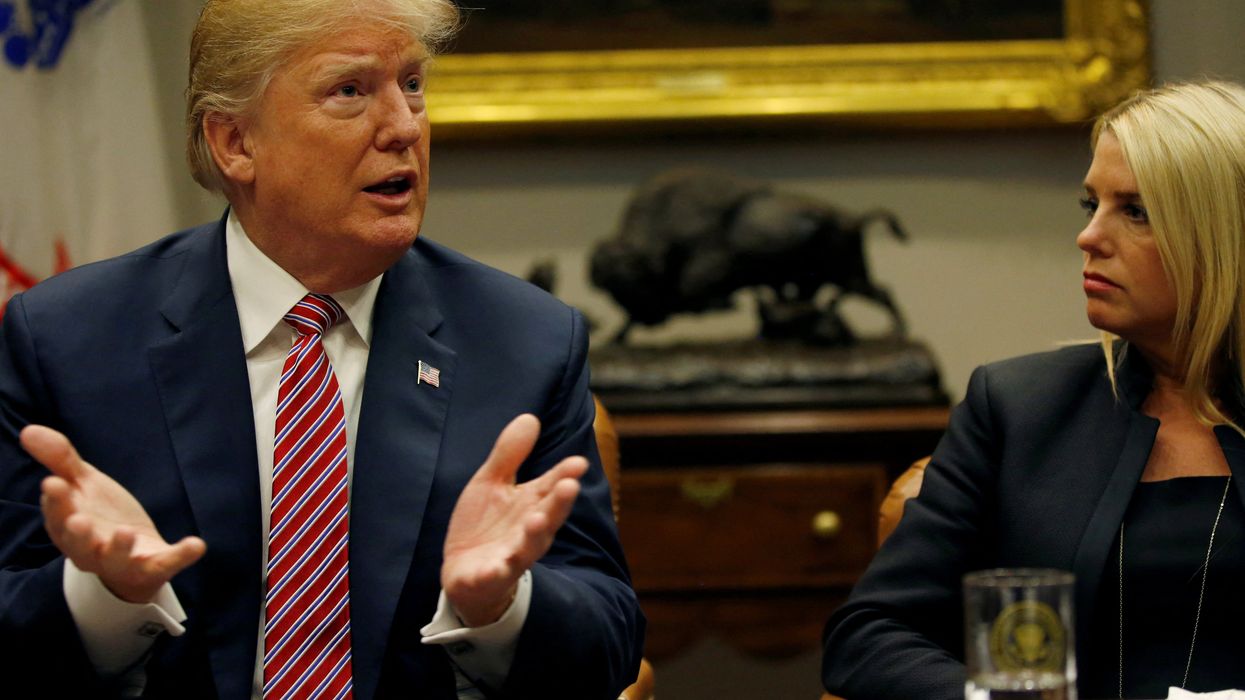Despite winning the presidential election and having Republican majorities in both chambers of Congress, President-elect Donald Trump may not achieve even a fraction of what he campaigned on, according to a new survey.
The Daily Beast reported that investors' skepticism of Trump's second term is particularly high, given how Wall Street responded to a recent Goldman Sachs survey. Respondents were particularly bearish on Trump's plans to deport millions of undocumented immigrants and make across-the-board budget cuts.
Only 6% of those surveyed told Goldman Sachs that they view immigration numbers will be a net negative under Trump, meaning that the other 94% are convinced that the United States will continue letting in more people than they deport. And despite billionaires Elon Musk and Vivek Ramaswamy setting a goal of recommending $2 trillion in federal spending, 90% of respondents predicted that Trump wouldn't be able to cut more than $400 billion.
READ MORE: Federal courts 'not likely to be sympathetic' to Musk's proposed budget cuts: legal expert
“This goal — which amounts to 31 percent of annual US spending, and 7 percent of US GDP — is sheer fantasy,” Harvard economist Jeffrey Frankel wrote in November. “Say they go fully draconian — starting by abolishing the Department of Education altogether, as Trump has pledged to do. This would reduce total spending by 4 percent.”
In a Wall Street Journal op-ed, Musk and Ramaswamy wrote that they planned to focus their efforts on "regulatory rescissions" and "administrative reductions." But because their "Department of Government Efficiency" isn't an actual federal agency authorized by Congress, it has no binding authority to actually make the deep cuts Musk and Ramaswamy are proposing.
Additionally, the legal argument the two made that supposedly gives them authority to significantly reduce federal budgets may not hold water if tested in the courts, according to University of Michigan law professor Nicholas Bagley. They argued that recent Supreme Court decisions like Loper Bright Enterprises v. Raimondo (which abolished the "Chevron Doctrine" that previously guided the regulatory process) and the 2022 West Virginia v. Environmental Protection Agency decision (in which the Court curbed the federal government's authority to regulate greenhouse gases) paved the way for them to bulldoze the administrative state, but other legal experts aren't as convinced.
“Nothing changed with respect to their authority to consider different approaches to regulating,” Bagley told the Hill last month. “If what they’re saying is agencies can now adopt different regulations without going through the administrative process, because they think they’ve got some clincher of a legal argument, I think they’re going to find out very quickly that the courts are not likely to be sympathetic with cutting procedural corners.”
READ MORE: 'Extraordinary situation': How Musk could personally reap billions from 'efficiency' panel


